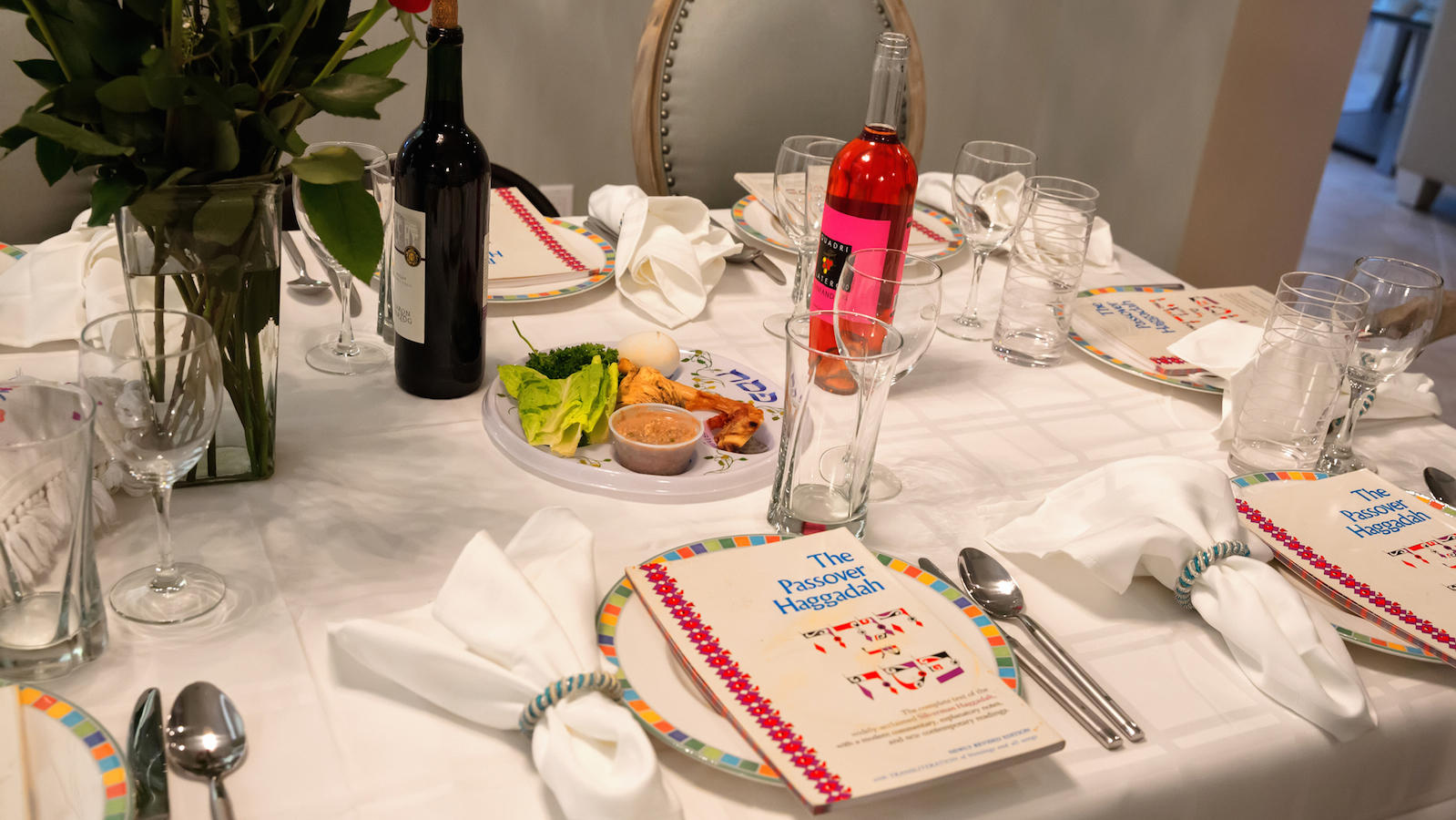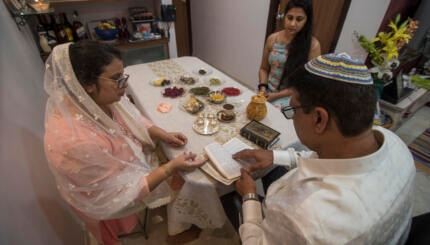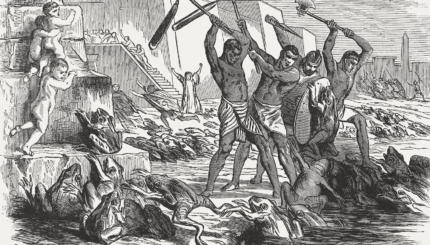There are several greetings that are often exchanged during Passover.
A zissen Pesach — Have a sweet Passover! (Yiddish)
Chag aviv sameach — Have a happy spring holiday! (Hebrew)
Chag kasher sameach — Have a happy and kosher holiday! (Hebrew)

Help us keep Jewish knowledge accessible to millions of people around the world.
Your donation to My Jewish Learning fuels endless journeys of Jewish discovery. With your help, My Jewish Learning can continue to provide nonstop opportunities for learning, connection and growth.
Chag sameach — Have a happy holiday! (Hebrew)
Melkam yeqita be’al — Happy holiday of unleavened bread! (Judeo Amharic)
Moadim l’simcha — May your times be joyous! (Hebrew, said only during the Hol Hamoed, or intermediate days of the holiday)
Pesach alegre — Happy Passover! (Ladino)
Passover Vocabulary (in alphabetical order)
—From a Greek word meaning “dessert.” A piece of matzah that is hidden during the course of the , found after dinner, and eaten as dessert at the end of the seder meal.
Arba Kosot — Hebrew for “four cups.” In this case, it refers to the four cups of wine drunk at the Passover seder.
Barekh— The 12th step of the Passover seder, in which Birkat Hamazon, the grace after meals is said.
Beitzah — Hebrew for “egg.” A roasted or hard-boiled egg is placed on the seder plate to symbolize rebirth.
Chad Gadya —Aramaic for “one goat,” this is the last of the songs sung at the conclusion of the seder and tells the story of the little goat a father bought for a pittance. Listen to the song below. Find lyrics here.
Chag Ha Aviv — Hebrew for “The Spring Holiday.” One of the alternate names for Passover.
Dayenu — Hebrew for “enough for us,” this is the name of a song sung at the Passover seder that tells of all the miracles God performed for the Israelites. Listen to it and see the transliteration in this video below.
Gebrochts — Yiddish for “broken,” this refers to matzah that has absorbed liquid. It is customary among some Orthodox Jews to avoid gebrochts as an extra stringency on Passover.
Haggadah — Hebrew for “telling” or “recounting.” A is a book that is used to tell the story of the Exodus at the seder. There are many versions available ranging from very traditional to nontraditional, and you can also make your own.
Hallel — The 13th step of the Passover seder, in which psalms of praise are sung.
Hametz — Bread or any food that has been leavened or contains a leavening agent, is prohibited on Passover.
Haroset — A sweet mixture of nuts, wine, and apples on the seder plate that symbolizes the mortar used by slaves in Egypt.
Hol HaMoed — The intermediate days of the holiday, between the first two days of holiday, and the last two days of holiday.
Kaddesh — The first step of the Passover seder, in which a blessing over a glass is recited.
Karpas — The third step of the Passover seder, in which a piece of greenery such as parsley is dipped into salt water and then eaten.
Kitniyot — Hebrew for legumes, the term here also includes corn and rice. These items were prohibited for use on Passover by some Ashkenazic rabbis in the medieval period, but many Jews (and increasingly Conservative Jews) do allow them on Passover.
Korekh — The ninth step in the Passover seder, in which bitter herbs are eaten together with a piece of matzah.
Maggid — The fifth and most substantial step of the Passover seder, in which the story of the Exodus is recounted.
Maror — Bitter herbs. The eighth step in the Passover seder, in which the herbs (usually horseradish), symbolizing the bitterness of life under Egyptian rule, are eaten.
Matzah — Unleavened bread. According to the Bible the Israelites ate matzah right before they left Egypt. Today matzah is eaten during Passover to commemorate the Exodus from Egypt.
Motzi Matzah — The seventh step in the Passover seder, in which a piece of matzah is eaten.
Nirtzah — The 14th and final step of the Passover seder, in which the night is concluded by saying “Next year in Jerusalem.”
Pesach —Hebrew for “pass over.” Cooked meat that, according to the Bible, was eaten by the Israelites just before they left Egypt.
Rahtza — The sixth step of the Passover seder, in which the hands are washed for a second time, and a blessing is recited.
Seder — Hebrew for “order.” The Passover ritual where family and friends gather on the first one or two nights of Passover to retell the story of the Exodus. The story is told in a particular order, with specific rituals.
Shir Hashirim — The Song of Songs, the text read in synagogue during the of Passover.
Shulhan Orekh— The 10th step in the Passover seder, in which the meal is served. Pass the matzah balls!
Tzafun — The 11th step of the Passover seder, in which the afikoman is found and eaten as dessert.
Urchatz — The second step of the Passover seder, in which the hands are washed but no blessing is recited.
Yahatz — The fourth step of the Passover seder in which a piece of matzah is broken in half.
Zeroa — Shank bone. The bone is placed on the seder plate and recalls the blood on the doorposts and the terror and the anticipation of the night of the plague of the first born.
Prep for Passover like a pro with this special email series. Click here to sign up and you’ll receive a series of helpful, informative, and beautiful emails that will help you get the most out of the holiday.



